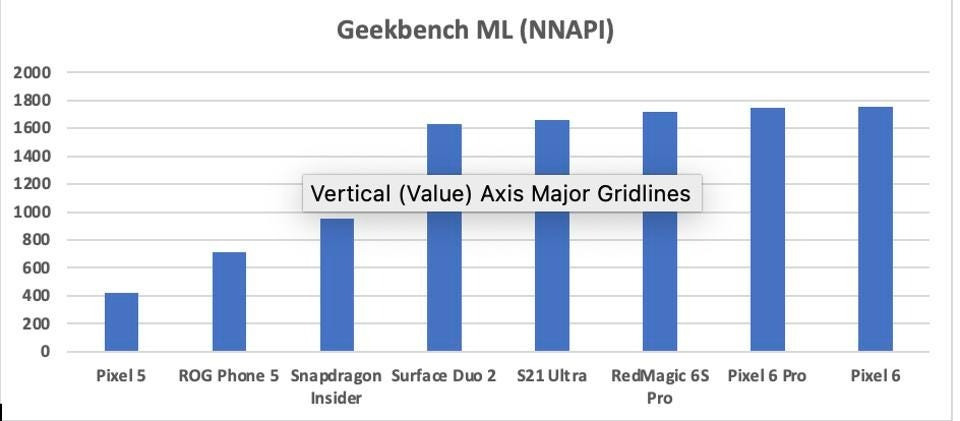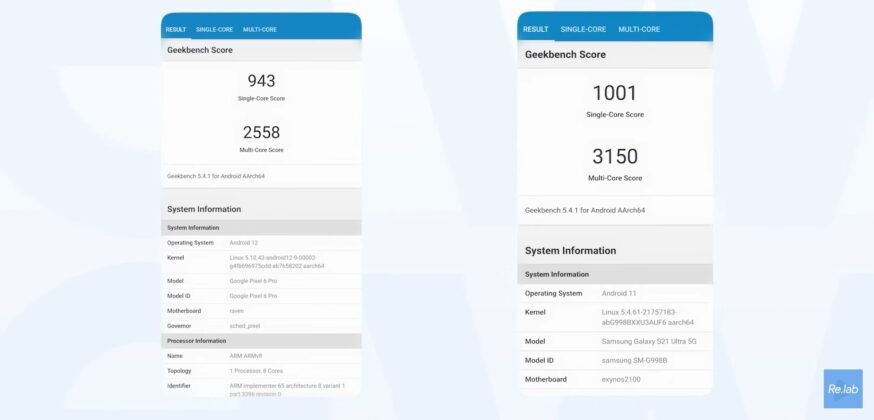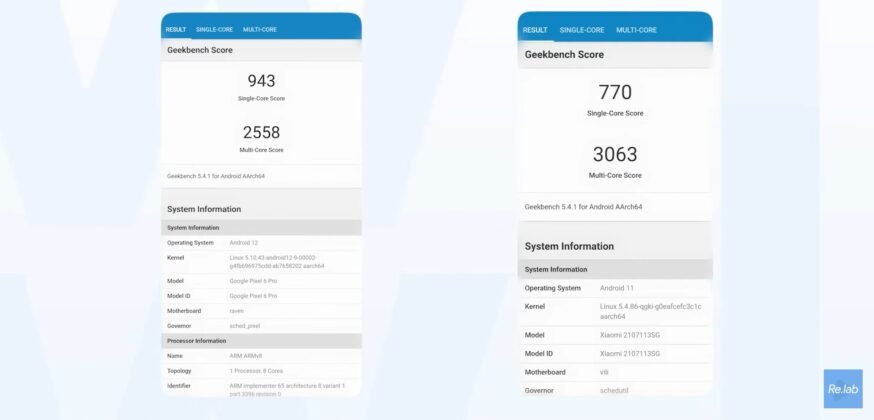Pixel 6 is the latest smartphone offering from Google that blends AI and machine learning with powerful hardware to bring an optimal user experience. Unlike the previous Pixel smartphones, the Search giant added an all-new Tensor SoC to uplift the performance and efficiency while offering a splendid experience. Google Pixel 6 is faring quite well against the other flagship smartphones in the market.
So we have compiled the Pixel 6 performance benchmarks to give you an overview of the smartphone’s prowess over other smartphones.
![]()
Performance benchmarks help to estimate the smartphone’s performance in normal usage and also rank the phone in performance order. The presence of the first-ever custom SoC from Google further excites us to check its actual performance.
The new Tensor SoC is purely designed to offer the blend of powerful AI and Machine learning aspects on a mobile chipset. Apart from the performance, the new SoC offers powerful GPU performance. It is built of ARM cores, while Google worked on its TPU and ISP aspects. There are hardly any official details on Google’s input in the chip i.e. the TPU and ISP. But benchmarks can give us an overview of the SoC’s capabilities.
Pixel 6 3DMark GPU benchmark
Pixel 6 GPU outperforms all the flagship SoCs including the Snapdragon 888. According to a Reddit user, the Pixel 6 scored 6666 points on 3DMark’s Wild Life Test.
Meanwhile, the Snapdragon 888 scored 5599 and the Exynos 21000 attained a score of 5668.
In 3DMark’s Wild Life Extreme test, the Google Tensor SoC scores 2028 while Snapdragon 888 and the Exynos 2100 stand at 1494 and 1793, respectively.
However, the performance across these benchmark apps confirms Google’s efforts are in a positive direction. It scores the highest average frame per second of 12.10.
![]()
Pixel 6 Pro AnTuTu
In AnTuTu benchmark, the Pixel 6 Pro attains 177890 points in CPU, 287342 in GPU, 99684 in MEM, and 144852 in UX with a total score of 709,768 points. Meanwhile, the Red Magic 6 with Snapdragon 888 with a dedicated cooling system scored a total of 858734.
Pixel 6 Pro Geekbench
Google Tensor SoC performs on par with the Exynos 2100 running on Galaxy S21 Ultra 5G. Pixel 6 scores 943 in single-core and 2558 in the multi-core test. On the other hand, the Galaxy S21 Ultra 5G scores 1001 points in single-core and 3150 in the multi-core test. However, the Snapdragon 888-based Mi 11T Pro performance scores only 770 points in single-core and 2063 in multi-core tests.
Pixel 6 Genshin Impact Test
Genshin Impact test provides real-world performance indicators for the SoCs. Pixel 6 Pro encasing the Tensor SOC scored as low as 30fps, and the average was at 32fps with 43.5°C. While gaming with fan, the fps jumps to 50 immediately. Tensor’s underwhelming performance brings it to the sub-premium chipset level.
On the other hand, the Snapdragon 888 averages at 42fps.
Pixel 6 GeekBench ML

Based upon the test of both the CPU and GPU, the Pixel 6 scored 1700+ points which is better than Red Magic 6S Pro and S21 Ultra standing scoring below 1700. Google Tensor looks to be a massive improvement, with the fastest NNAPI performance across the competition.
PC Mark Android

In another benchmark test the Pixel 6 series seems to underperform than the snapdragon 888 based Galaxy S21 Ultra, RedMagic 6S Pro, and Snapdragon Insider Phone. We can see a performance difference of up to 37% with Snapdragon flagship SoC.
Conclusion
Pixel 6 seems to be a major performance upgrade over its predecessor. In terms of efficiency and performance, the Google Tensor SoC outperforms Snapdragon 888 in some aspects like AI, but improvement can be made for an overall better output in all the fields.
RELATED:






